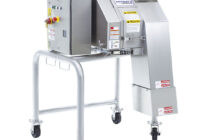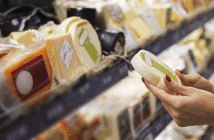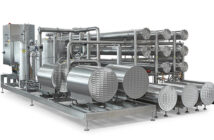"Consumers want and expect more information about what they're eating than ever before – and New Zealand exporters must be able to supply that information", says Maersk Line New Zealand Managing Director Julian Bevis. "The two most common topics of conversation at the Meat Industry Association (MIA) conference were traceability and environmental sustainability," says Bevis.
"What those issues have in common is the increasing desire by consumers, particularly in Europe, to know what it is they are putting on their plates. Consumers want the back-story: where and how the animal was raised, processed, transported, and so forth. Companies that can provide that information will have a definite edge: suppliers such as ourselves have an important part to play in ensuring they can do so effectively", Bevis says.
Maersk Line's focus on improving its environmental performance helps the line's customers demonstrate their own environmental credentials, citing Maersk's commitment to reducing CO2 levels as an example.
"Over the past few years, we have cut CO2 emissions per container moved by more than 15 percent – and we intend to achieve a further 20 percent reduction by 2020," he says. "Maersk was the first line to have our fleets total CO2 emissions independently audited, providing our customers with reliable data they could use in assessing the total environmental impact of their goods."
Other Maersk Line initiatives, such as its ballast water management programmes and its increasing use of low-sulphur fuels – recently extended to all New Zealand ports – are at the leading edge of industry best practice, and demonstrate the importance the company places on sustainability. Bevis says, "The MIA conference was an excellent opportunity to catch up with key players from across the industry. Maintaining a service that meets the needs of our customers in a way that's affordable for them and cost-effective for us requires a high level of mutual understanding. Talking face-to-face with individual processors and producers, listening to their issues and explaining our concerns, is the best way to achieve this, and events like the MIA conference help cement the very important relationships we have built up over the years."




























































































